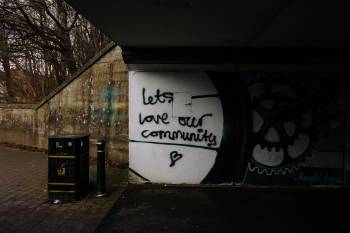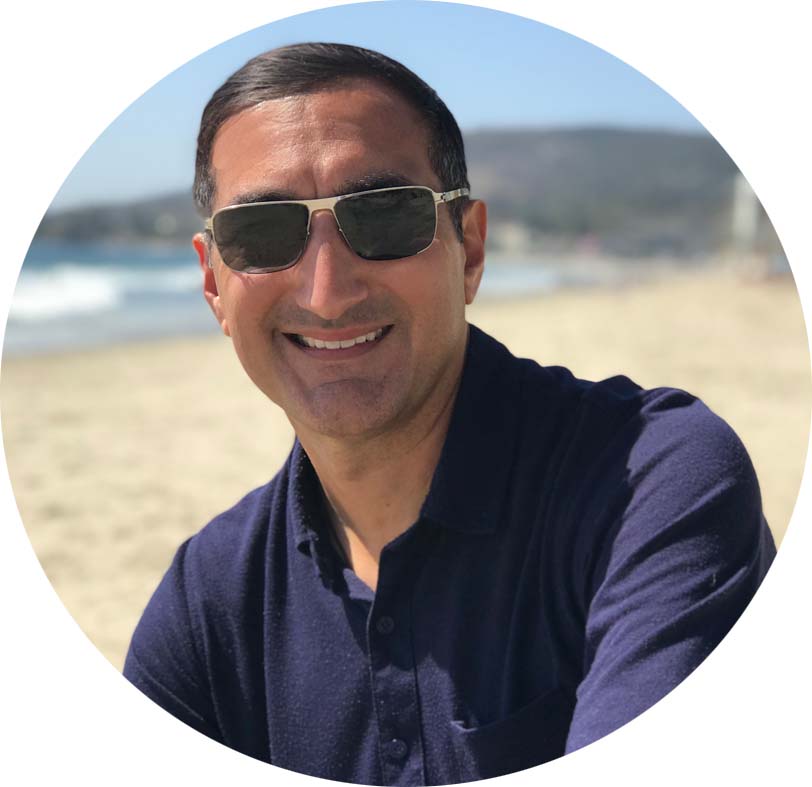I approached him, a lone figure standing in the grass, his head hung low. We embraced and I told him, “I’m so sorry. I’m so sorry.”
This encounter marked our first meeting after his terrible, unimaginable loss and I was prepared for it. I was determined to be present and to resist any impulse to fill the space of quiet with my bumbling and fumbling words.

To my relief, he spoke first. He spoke openly of his deep grief and almost unbearable sadness. But then he said something that surprised me, a brief ray of words that pierced through the darkness:
“I’m so thankful for the community; how it’s supported me. I know you guys love me, that you really care.”
I walked away, my mind spinning, “Wow! In the midst of all his pain, grief and sorrow, the love of this community broke through. That’s amazing.” In that moment, I felt hope.
Community as a safety net
I’ve thought a lot about this idea of community since my encounter with my friend. It seems so many of us have lost sight of the real power and importance community plays in our lives. I witnessed real community in action, and saw it serve as a safety net for a young man, a new father, living far from his home and his family.
I discussed this with my wife and she reminisced about the small farming town in Central Florida where her father grew-up. In that small town, when tragedy struck, there was a communal safety net that enveloped and cared for the grieving family. Aunts, uncles, cousins and neighbors knew what was expected of them. They were a community of people who lived, loved, and lost together, side-by-side. Everyone participated, because they knew that someday, the community would be there for them too.
But look at us today, just one generation later.
Families move away from aged parents to pursue their own dreams and jobs.
Kids go off to college in far away cities, never to return home.
Our culture of independence and mobility tore down the pillars of our historical safety net, the community. Upon reflection, I realize that I, that all of us, need to become more intentional about building our own communities.
Community as a place to be known
Social scientists define community in different ways. I found the following description the most helpful:
- A place of social interaction which provides support.
- A place of shared interests and concerns that perpetuates communication and relationship.
- A place of joint action, where burdens are shared and service is given to help those in need.
Who doesn’t want to be a part of something like that?
A place where we can be understood, accepted, and supported? A place where we can bear each other’s burdens and be connected?
Phil 2:4: “Do not be interested only in your own life, but be interested in the lives of others.” (NLT)
Life just works better when we’re in relationship with each other. Person to person. Person to community. When will we learn that standing outside of this natural way of existing just makes life far more difficult than it has to be?
A strategy for building community
I developed an acrostic as a method to help me be more intentional – to INVEST in, and build better community around me:
Invite others.
Network and connect.
Volunteer and help.
Enquire about interests.
Smile at everyone.
Talk to everyone.
I can tell you that being part of a community works because my wife and I are one of those couples who moved far away from all family and friends. We’ve been purposeful and intentional about taking time to INVEST in our new communities, and, because of that, life is richer, more fulfilling and a lot less scary.
Be Wise & Successful . . .
The challenge for this week is to start building two new communities. Use two of the INVEST strategies with someone you “sort-of” know, and someone you don’t know.
1. Invite someone to get a cup a coffee, and be sure to pay for your guest.
2. Network two friends together who share a common interest.
3. Volunteer to help a neighbor with an errand or something they need.
4. Enquire about joining a volunteer organization, community group or church.
5. Smile at someone who looks concerned or fearful.
6. Talk to someone about their family, job or hobby.

Do you want to live a happier, more successful life? I’m Greg, that’s my passion, and that’s what I explore on my blog. Read More…
